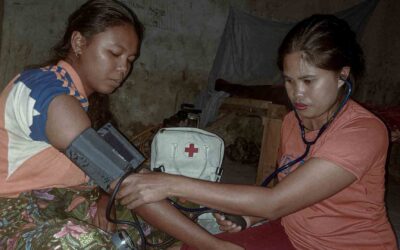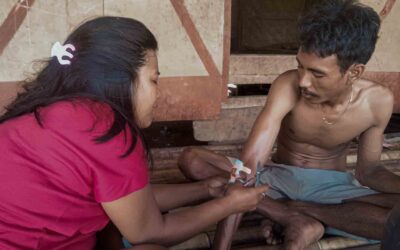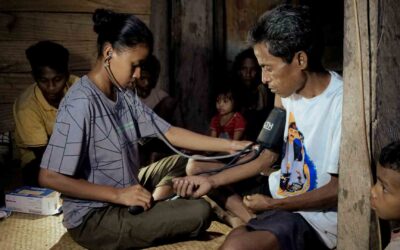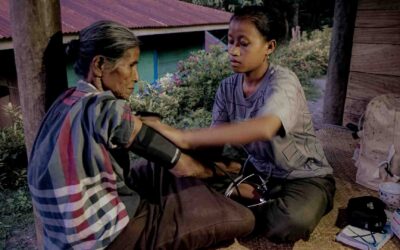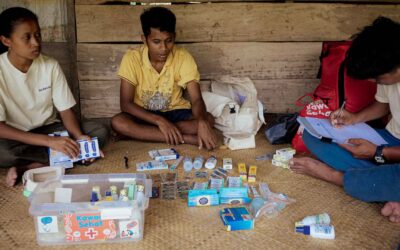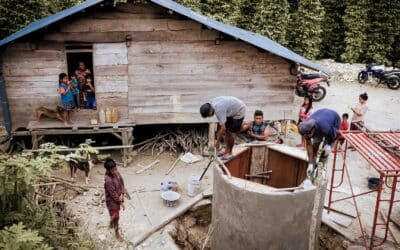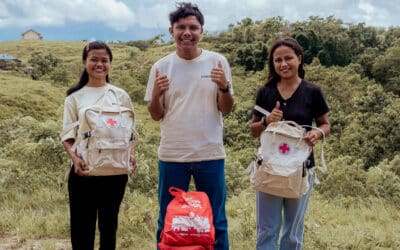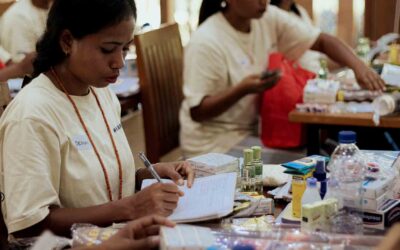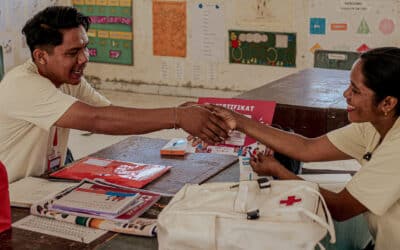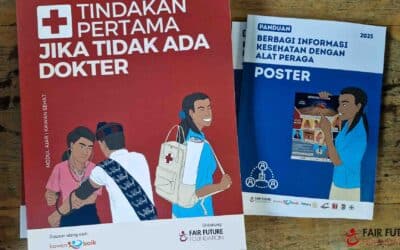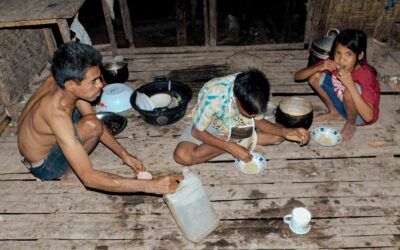In the hills of East Sumba, Kawan Sehat health agents walk for hours to reach families who live far from any clinic or road. Equipped with a medical backpack and solid training, they treat fevers, wounds and malaria, document every case, and call our doctors when a life is in danger and transfer is possible.
Malaria continues to pose a daily threat in this area. Through Kawan Against Malaria, we monitor cases, test all fevers, protect homes, and educate families. The use of bed nets, spraying, and prompt treatment turns statistical data into lives that endure quietly, rather than ending prematurely.
Donate
Support Care
Programs
All projects
Quick News
Field updates
Stories
Field stories
Delivering essential medical care in villages with no clinics or doctors, saving lives and building trust.
Kawan Sehat wound care in remote villages saves lives
In this image Kawan Sehat wound care happens on a bamboo floor where clinics are days away. The agent irrigates, debrides if needed, applies a sterile dressing, checks tetanus, and teaches danger signs. Early care stops infection before it spreads to the blood. This is how primary medicine prevents funerals.
Kawan Sehat Rural Health Agents
Kawan Sehat agents are trained women from rural villages who deliver medical care where no other system exists. Their work is vital, human, and lifesaving—guided by knowledge, trust, and compassion.
Primary medical care donation for 2025/26 program
Fair Future Foundation and Kawan Baik Indonesia made a primary medical care donation of CHF 19,248.96 (around IDR 400 million) covering 32% of the program’s 2025–2026 budget. This funding sustains healthcare access for thousands of people in ultra-rural Indonesian regions lacking clinics, doctors, or medicines.
Primary Medical Care in Remote Areas
Primary Medical Care brings professional health services to isolated areas of Indonesia. Without clinics or doctors, we train agents, treat the sick, and deliver essential medicine and care, directly to the people.
What We Learn by Being There
In May, 21 Kawan Sehat health agents completed intensive training in primary care. They now serve nearly 1,000 patients each month in remote Indonesian villages, offering medical treatment, prevention, and education where no doctors are available.
Erwin’s Journey Bringing Care
Erwin, the Field Coordinator of the Primary Medical Care programme, spends days crossing muddy roads, broken bridges, and steep trails to deliver medicines to Kawan Sehat agents. His work keeps remote East Sumba villages connected to lifesaving care, dignity, and trusted medical support.
Kawan Sehat Health Training
In May, 21 Kawan Sehat health agents completed intensive training in primary care. They now serve nearly 1,000 patients each month in remote Indonesian villages, offering medical treatment, prevention, and education where no doctors are available.
Ibu Anggi receives her certificate
This new photo of the day shows Erwin delivering a Kawan Sehat certificate to Ibu Anggi in Laindatang. It’s not just a document, but a symbol of her essential role in healthcare delivery where there are no doctors.
Medical Tools for Remote Care
Fair Future creates mobile health apps designed for health agents working in remote areas. These offline-capable tools help diagnose diseases, manage emergencies, and guide rural care, empowering medical action.
Empowering Health in Remote Indonesia
Fair Future Foundation has published two essential guides: an updated training manual for health agents and a booklet on using educational posters, helping communities in remote Indonesia manage health challenges and save lives.
Why We Keep Getting Sick
In Laindatang, a child asked why he and his family are always sick. The answer lies in the water: diarrhea, typhoid, skin infections, hepatitis A. Fair Future fights back with clean water and frontline medical care.



